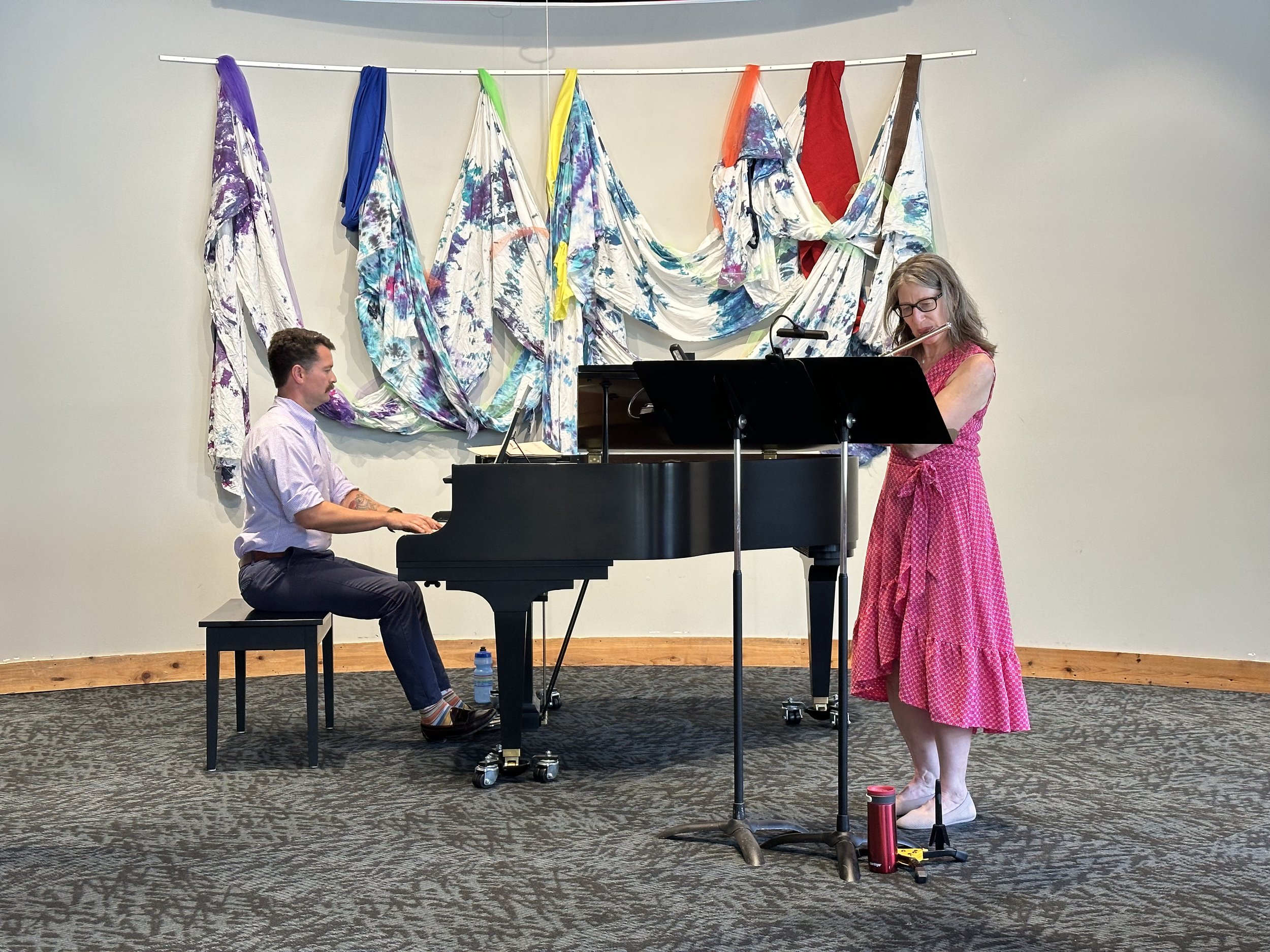There’s never been a period of my life without music. Both of my parents were musicians. My mother was a pianist, and her mother was a church musician and pianist, just like me. My father was a trumpet player and band leader; he led the Cadet marching band and jazz band at the United States Military Academy at West Point. Both of my sisters were pianists, though one of my sisters preferred dance to music.
Coming from a musical home meant I was surrounded by music of all kinds. My father would play his old big band jazz records, favoring the brass-forward sounds of Glenn Miller and Benny Goodman. He also introduced me to the jazz pianists like Dave Brubeck and Thelonious Monk. His car radio was always set to the local NPR station, and he taught me how to listen to a Beethoven symphony, a Bach cantata, and a Mozart concerto. By the time I took my first listening exam in my college musicology courses, I had been identifying compositions by their sound for years.
My mother grew up to the soundtrack of the rock and roll revolution of the 1950s and 60s. If it had a driving beat and bold vocals sung by a handsome rockstar, my mother was all over that music. She ensured I knew about Elvis Presley, Buddy Holly, and Jerry Lee Lewis. She didn’t care much for the Beatles, but she had me listen to their music. Mom also loved musicals, particularly the big-budget productions of the 80s and 90s. Cats and Les Mis were her favorites.
It’s no surprise that my musical tastes reflect my musical matrix. Brassy music with full-chest singing and theatrical vibes? No wonder I love ska as much as I do. I’m immediately drawn to music with pulsing rhythms and spicy harmonies. A Telemann suite properly played can excite me as much as a thundering death metal album.
Mom enrolled me in a church choir at age five, and I’ve never stopped singing. I didn’t love it at first; in fact, I despised it for a long time. However, my high school church youth choir provided an opportunity for me to make friends who make music together, and that planted the seeds for my passion for creating community around sharing and performing music. 35 years later, I’m still singing in a church choir, and my choral colleagues are friends as much as they are ensemble mates.
My parents signed me up for piano lessons when I was 10, a relatively late start for professional pianists. They noticed I was always the kid who could find a piano in any building, and I would plunk on the keys trying to make sense of it all. They took the hint and found a teacher who taught at a nearby church. My first lessons were in that church’s choir room, and I blitzed through the primer book in about 3 months. Three years and three teachers later, my parents finally found a teacher who could match my ambition, and she had me playing Joplin rags, Beethoven sonatas, Mozart variations, and Chopin nocturnes and polonaises. She introduced me to Brahms - the Waltz in A-flat Major, Op. 39, and that’s when I fell in love with the instrument. Critics often deride Brahms’ music as being too intellectual, too detached, but I could feel the bottomless yearning for authentic connection in his music. Maybe it helped that I was a closeted gay boy growing up, and I also had to present a detached facade to survive high school. Piano was the place I could go to be my most authentic self because no one was around to tell me what to do or who to be. No one ever had to remind me to practice; my parents had to tell me to stop practicing so I could do my homework.
With piano and choir, I found the music I love to make. Choir was my team sport; piano was my solo sport or a doubles sport with a duet partner or chamber music. I earned my undergraduate degree in piano performance and my master’s in choral conducting. From there, I stumbled into the career I have, running a full-time teaching studio and singing in a cathedral choir as a section leader. I feel fortunate to be able to put my musical degrees to profitable work.
I’ve learned a lot about patience and diligence through music. You can’t force the music to be learned on your timetable; rather, you must discipline yourself regularly approach the instrument with thought and care. Even so-called “easy pieces,” if they exist, require thoughtful practice if you want to perform them beautifully.
Music has taught me how to express myself on my terms, in tandem with the composer and my fellow musicians. Brahms teaches me to express my longing for a truer life. Beethoven invites me to play both my rage and thunderous joy. Mozart reminds me to laugh at the world. Even Bach - heady, contrapuntal, florid Bach - reminds me that order and beauty go hand in hand.
A lifetime of preparing and performing music gave me the skill set to compete in endurance competitions. The same diligence and patience required to prepare and perform a full-length recital is needed to train for and compete in a half marathon. The flutters I feel backstage before performance are nearly identical to the jitters I feel at the start line of a triathlon. Music taught me how to handle the pressures of competitiuve sport.

